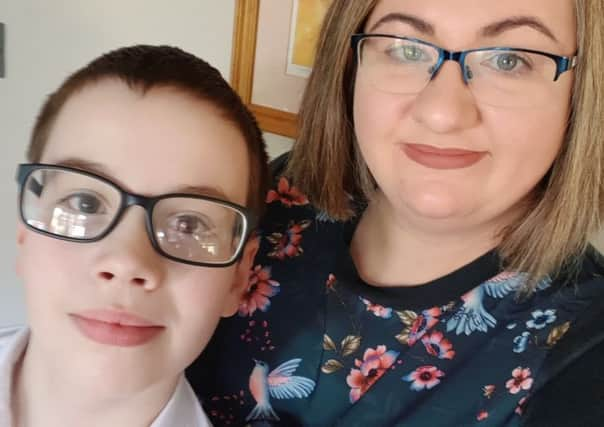Betty Light: The struggle for autistic children to get an education should not happen


More than a third (34 per cent) of those who responded to the survey reported that their children had been unlawfully excluded in the last two years – with almost a quarter (22 per cent) of those parents saying this happened multiple times a week.
An exclusion is unlawful when a school sends a child home without using the formal process. Scottish Government guidance is clear on its position that unlawful exclusions should not happen. But they do. I’ve spent the last year fighting for my son’s education.
Advertisement
Hide AdAdvertisement
Hide AdCalum is 12 and is currently in first year in an autism unit in a mainstream high school. Things are going really well so far. He enjoys the different subjects and one science teacher has made a particular impression with his fascinating experiments.
It is a relief for me to see Calum enjoying school. He is a bright and capable boy with a high IQ, but he struggles with noisy environments and fine motor skills. This is frustrating him more as he gets older and notices his peers can do things he can’t.
I just remind him that he can answer the questions on Only Connect that most adults find impossible!
Before starting high school, Calum attended an autism unit in a mainstream primary school. This went really well at first and he came home each day with his head up, shoulders down and full of chat. But after a while there were staffing changes that Calum found stressful. He started breaking his glasses, a coping tactic he’d developed years before.
This was when the fight really began for our family. In October 2017 Calum received his first unlawful exclusion. He was just 11. My husband and I were actually at the school at the time for a meeting about Calum’s transition to high school. My husband was suddenly asked to go to the classroom because Calum was having a meltdown and the teacher needed help. We were asked to take him home immediately.
Things spiralled from there and between November and December 2017 Calum had four unlawful exclusions, culminating with a formal exclusion on 11 December. I felt this was unfair and I didn’t want it on his record, so I contacted the National Autistic Society Scotland.
The charity works with legal firm Harper MacLeod to provide free legal advice around education rights. Together we appealed the exclusion, which meant facing the council and his teacher in a formal hearing. This was an intimidating process, but I was armed with the information and expertise I needed. I’m proud to say I won the appeal for Calum.
He returned to school in January this year on a part-time timetable. Let me be clear: part-time timetables are another form of unlawful exclusion. It was incredibly important to me that Calum didn’t begin to feel like being at home was the easy option, so I got materials and home schooled him.
Advertisement
Hide AdAdvertisement
Hide AdThis had a real impact on me and our family. I had to give up work because I was never sure if Calum would be allowed to go to or stay in school. I even had to give up volunteering with a local children’s charity, something I really enjoyed. I always had to be there to pick up the pieces when the school let Calum down.
After an incredibly hard year, Calum was moved to a different class for his last term at primary school. I was worried about how he would cope with the change but his teacher was great. He spent a long time talking to me to understand Calum and his different coping mechanisms and pressure points.
Throughout our struggles with the education system I have often felt that my insight has been disregarded. I am ‘just’ a parent. But when teachers have listened to what I had to say, it has made a huge difference to Calum and the staff in the school. It’s important to remember that parents are leading experts on their own children.
I would love to see Calum live as an independent adult, and most of all I would love to see him find something he really enjoys and build a rewarding career out of it. All of this is absolutely possible with the right education.
The report published by Children in Scotland, the National Autistic Society Scotland and Scottish Autism proves what I already know – the parents of autistic children often have to fight for their education. Believe me, I am ready for the fight.
To read the Not Included, Not Engaged, Not Involved report, please visit www.notengaged.com
To find out more about the National Autistic Society Scotland’s Education Rights service, please visit autism.org.uk/services/helplines/education-rights
Betty Light